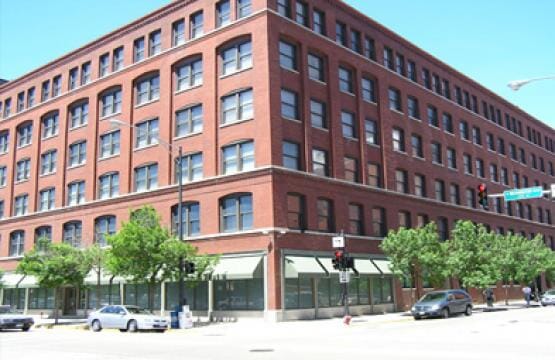Working primarily with the homeless, poor and ex-offenders, the Haymarket Center provides substance abuse treatment services including detoxification, intervention, residential treatment and transitional housing for both men and women. With an emphasis on the 12-Steps, treatment options at The Haymarket Center feature health and wellness classes, and job search and life skills training. All Haymarket treatment is geared toward helping patients lead a healthy, drug-free life.
ABOUT HAYMARKET CENTER – CENTRAL CHICAGO
Haymarket Center, founded in 1975, is one of the largest facilities in Chicago dedicated to helping those struggling with substance abuse issues — serving up to 18,000 men, women, and children each year. Haymarket offers a full range of services, including residential, outpatient, detoxification and over 30 specialized programs (more than half of which are CARF-accredited).
TREATMENT & ASSESSMENT
This central Chicago facility is one of Haymarket’s four main locations, but specifics on its unique offerings are not available.
Upon admission, each client takes an initial assessment to determine the most appropriate level of care. Programs have a strong reliance on the 12-Steps, as well as individual therapy, group therapy, and family education. Most programs last between 60 and 90 days.
In addition to treatment, clients receive assistance with other needs, such as job search and permanent housing.
STAFF CREDENTIALS
Haymarket Center’s staff includes medical and counseling professionals such as social workers, counselors, and family therapists. The medically monitored detox facilities employ a psychiatric team and 24-hour nursing coverage. The facility also has a 14-member Board of Directors with extensive credentials and varied backgrounds.
ACCOMMODATIONS & AMENITIES
To better serve their surrounding community, Haymarket Center provides services in both Spanish and Polish. Smoking is allowed on-site, and cell phone use is limited. Visitation is arranged individually between the client and his or her counselor, and in terms of food, clients receive three meals per day in the cafeteria.
Living arrangements depend on the program. Most programs, such as the residential program for women, the integrated care program, and the rapid stabilization program, have 16 beds. The residential program for men can house up to 24 men at a time.
WHAT ALUMNI SAY
Alumni feedback submitted to Best-rehabs.com is mixed to negative. While some former clients could not have been happier with their experience, others voiced disappointments with some aspects of the treatment program. The five alumni polled on whether they would reccomend the facility gave an average rating of 2.8 out of five stars.
Diane told Best-rehabs.com: “Going into treatment was the best decision I made… I had been on drugs for over 33 yrs. and I needed more time to get it right.” J.R.T. echoed Diane’s sentiment, noting that the past six and a half years of sobriety is their longest period of recovery to date. He gave the facility a perfect five-tar rating for treatment effectiveness.
Some Best-rehabs.com reviewers were not as pleased. Denise, for instance, recommended that “they could have been more professional.” And an anonymous alum wrote: “This place is a joke.” Even the survey respondents who gave high scores for treatment effectiveness mentioned that there was not much family involvement.
Even amongst negative reviews the affordability of the facility was highly rated, averaging an impressive 4.6 out of five stars.
WHAT FRIENDS & FAMILY SAY
Reviews from loved ones were also mixed. Some gave stellar ratings and praised the ease of entry, but voiced complaints with regard to the specific programming and the food. The connectivity/visitor policy and family participation average 2.6 and 3.6 out of five stars, respectively.
“It had room to except patients,” an anonymous loved one said, “but limited knowledge of progressive treatment options.” T.R. added: “Plain no visitations was harsh. A lot of the day was watching sobriety video groups…”
In contrast, another anonymous loved one said she would definitely recommend the facility. “The counselors are really involved,” she concluded.
FINANCING
One of the facility’s guiding principles is to provide “comprehensive substance abuse treatment and referrals to Chicago’s vastly ignored and underserved populations regardless of their ability to afford services.”
Insurance including Aetna, Blue Cross Blue Shield, Cenpatico, CountyCare, Harmony, Illini Care, Meridian, and Molina Health are accepted. Sliding scale fees and funding options are available.
